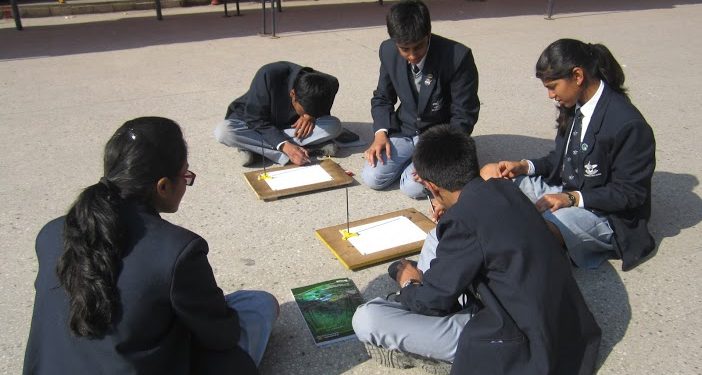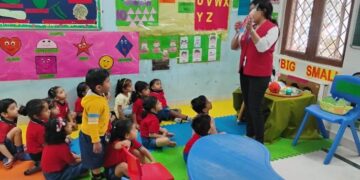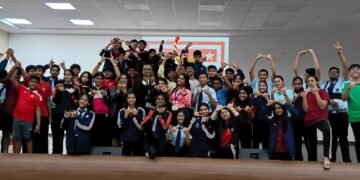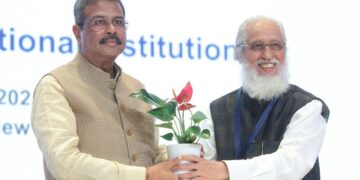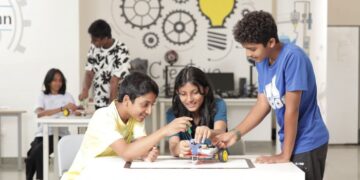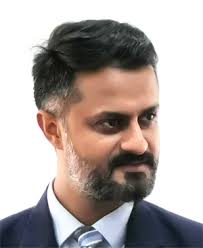
Quality education is essential for a person to develop skills, develop self-confidence and earn his bread and butter. However, the traditional education system has not been able to fulfil this objective. The system is broken and cannot cater to the needs of the current generation, much less to the demands of the next one. Studies have shown that to compete with the workforce and to succeed in future, students today will need the specific skills to collaborate in order to solve problems and use creative approaches and analysis. And by engaging in self-directed learning, they’ll have to work continuously on developing new skills.
The existing education regime is undergoing a disruptive shift. Most schools are making a transition to a personalized learning model. This form of learning is defined as ‘tailoring and customizing each student’s strengths, interests and needs – including enabling students to voice their choice in what, where, how, and when they learn.’ This is aimed at providing flexibility and support to students so that they master the required skills at the highest possible level. Despite the introduction of this reformatory model, the traditional education system has some serious shortcomings.
Here are some reasons why the traditional model of education can’t prepare students for the workplaces of tomorrow.
1. Limited Learning Outcome
A major reason for the failure of the traditional education system is setting inadequate learning outcomes. Most students do not focus on what they must learn and why. They are not even aware of the benefits of studying a particular subject. They do not understand the basic principles of studying a chapter and its key takeaway points. Students, instead, read the chapters only for the sake of performing in examinations. They hardly pay attention to the central idea of study and miss its essence completely. Ask a fifth grader what he studied in the second grade, and he’d most likely draw a blank. Or a student of the ninth grade won’t be able to recall the concepts that they studied in the eighth grade.
2. Discourages Collaboration
The current education system is not focussed on strong collaboration skills and therefore, it doesn’t stress upon developing an understanding of the value of input from others to generate ideas. Students are rewarded for tasks accomplished independently. The traditional education model teaches children not to collaborate. In quite a few cases, it looks down upon people who collaborate. And that is a negative lesson for future success. Professional workplaces value collaborative skills as well as people who have developed these qualities in themselves and are adept at working with others to devise effective solutions.
3. Lacks Focus on Creativity
Recruiters of the modern-day workplace are headhunting for people who can think out-of-the-box and bring innovative solutions to work. When they ask questions during interviews, they focus on ‘how’ the candidate handled the question, and not on the actual response. They ask questions that test a potential employee’s creativity. Employers, today, want assurance that the candidate knows how to solve problems, can address issues that challenge a person’s imagination, and can grab unique opportunities to develop and hone their creative processes.
4. Discourages Self-Directed Learning
The existing education model gives students little to negligible say in what they would like to learn. There is hardly any customization permitted. The only way to gain knowledge is by following a pre-defined curriculum in a pre-defined order. A forward-thinking company would never prefer an employee who has been educated using this model. Personalized learning enables children to explore their interests according to their own curiosity. Students in these classrooms understand well where they can find resources required to help them learn more. On top of that, they’re even given time to figure out the solutions. Students whose curiosity is piqued generously remain immersed in the learning process through-and-through. They learn about the topics in-depth and gain hands-on experience through trial-and-error. Consequently, they find approaches which work best for them.
5. Emphasises Rote Learning
The traditional education system is basically designed to prepare people for clerical, mundane jobs of the colonial period. As a result, there is no concept of creative thinking, imagination, visualization, out-of-the-box thinking, and rational reasoning. Students are forced to learn subjects that they have no interest in. The primary focus is on writing the ‘correct’ answer because wrong answers lead to deduction in marks. Students who don’t write what is taught in classes are considered weak and humiliated before other students. Asking questions is discouraged. So, the spark of creativity, innovation and smart thinking is doused in the student before he even tries to ignite it. The conventional education system crushes the soul and spirit of students, not letting their innate talent come to the fore.
Summing Up
A sound education system is the core of a nation’s progress. But the prevailing system suppresses the lives of students, pushing them to opt for streams they have no inkling of and no interest in either. It’s time now to adopt remedial measures to revolutionise the traditional ways of learning and devise a more flexible version which is robust and nimble.


